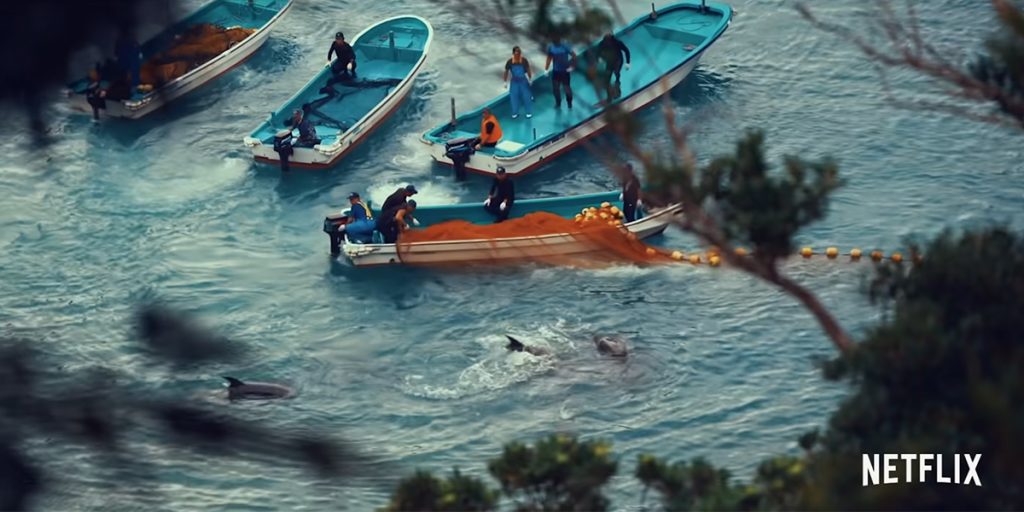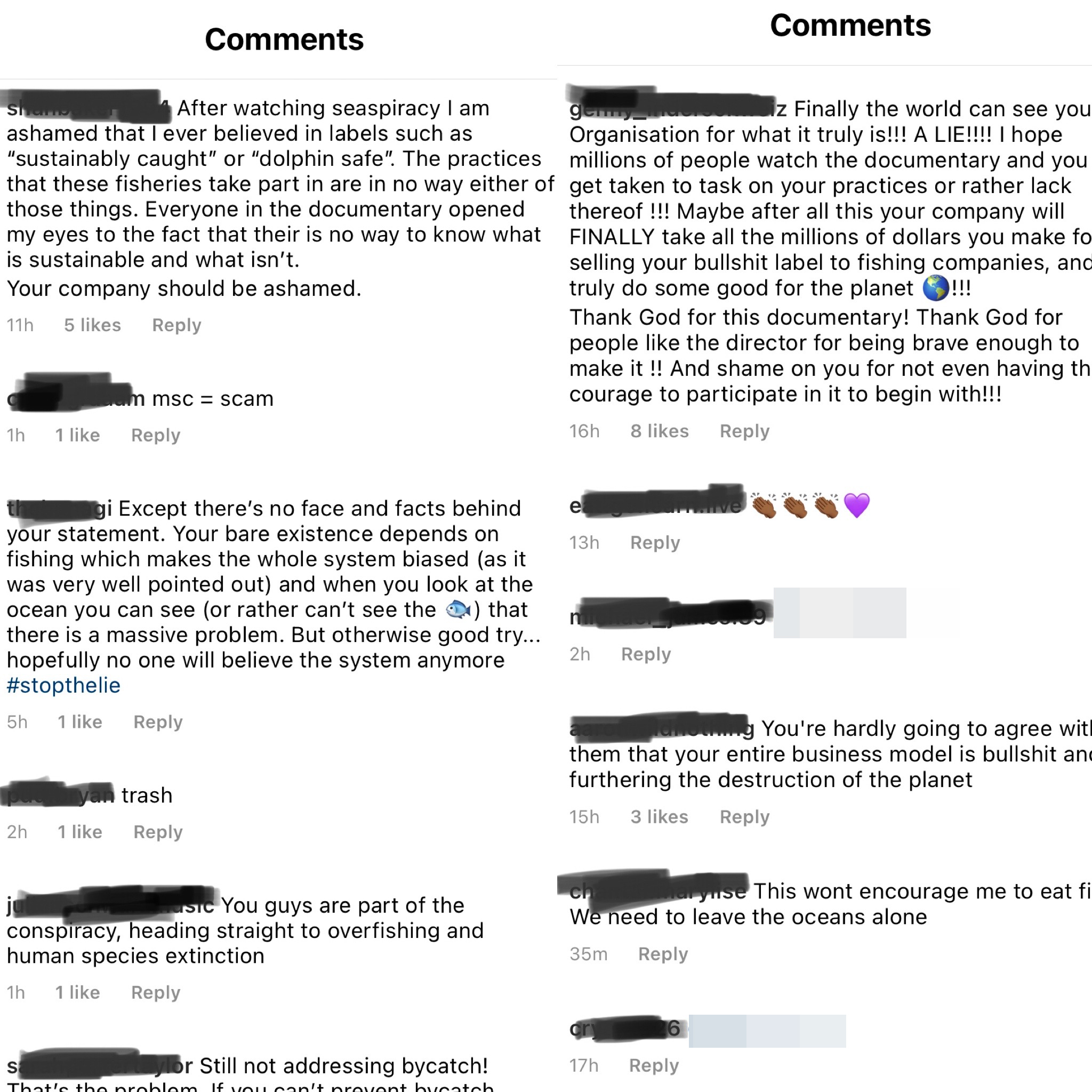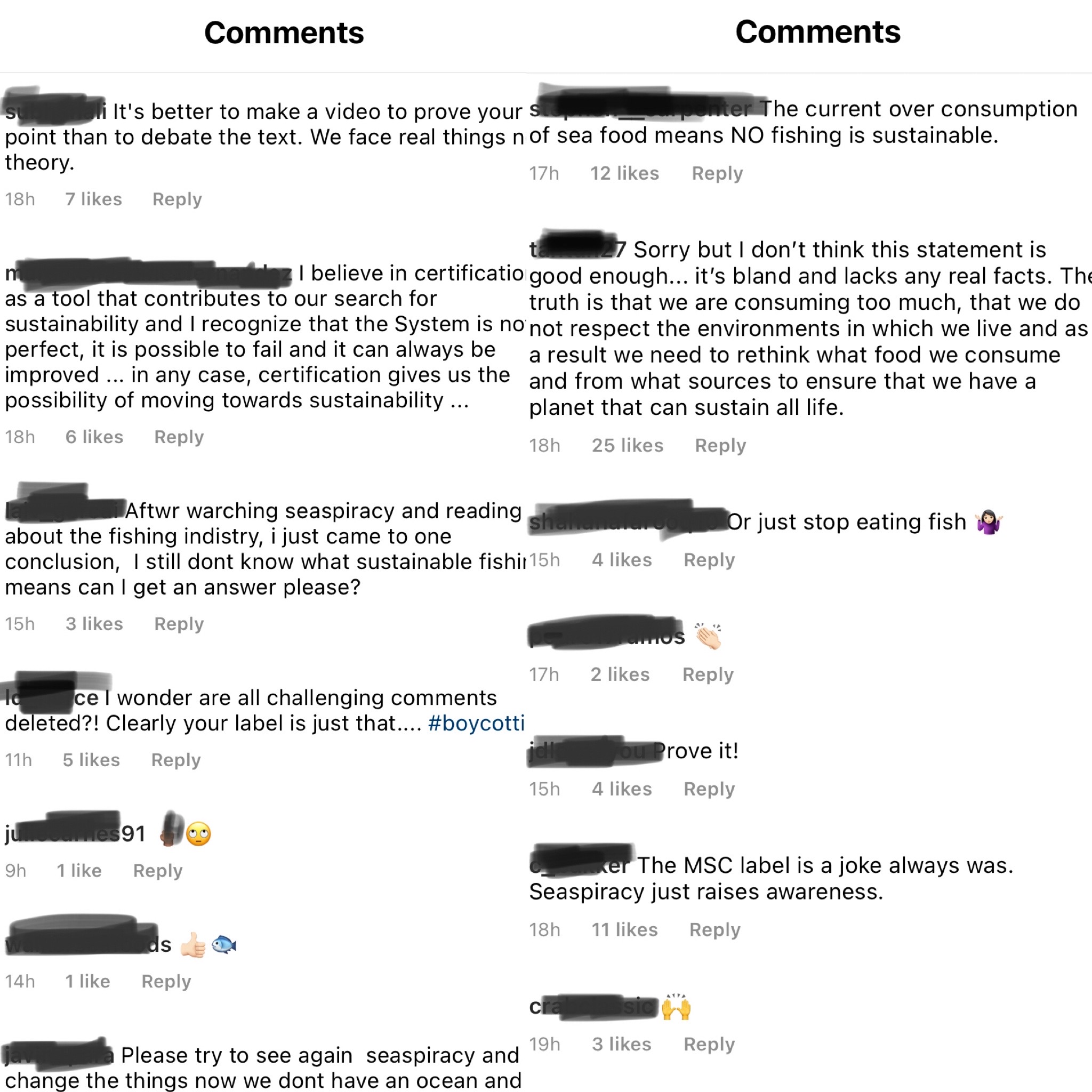Here's Why Not Everything Is As Terrible As Netflix Documentary 'Seaspiracy' Claims
The conclusion of 'Seaspiracy' is we can't do sustainable fishing and overfishing is the greatest threat to our marine life, so the only thing we can do as consumers is to stop consuming fish.
A new investigative environmental documentary has hit our screens late last month on Netflix: Seaspiracy
As the documentary is currently climbing the ladder among Netflix's most-watched shows, it is resulting in shoals of people declaring their refusal to eat fish and denouncing their trust against the sea conservation organisations on social media.
Seaspiracy is a controversial feature-length documentary exploring the environmental impact of overfishing problems. It is slickly produced and is exposing the damage of overexploitation on marine life as well as human rights injustices on the world's seas.
Many have praised Seaspiracy for bringing light to the important environmental issues —overfishing, destruction of marine ecosystems, and more.
Admittedly, I was one of those who were delighted by this fact and couldn't hold my breath waiting for its release on Netflix.
But, I felt the complete opposite after watching it.
Feeling hopeless and despair as the effect from the information presented in the documentary is definitely valid — but, that's beside the point. Because, largely, I was disappointed by the narrative.
It discredits scientists and experts and reports cultural element bias
The documentary has received a fair amount of pushback from marine and conservation organisations for being misleading, some of whom say their interviews were taken out of context.
I'm not going to bore you with a huge laundry list, but below are the three things Seaspiracy tells you that I find problematic:
1. "There's no such thing as sustainable fishing"
The main mantra that the documentary first drops is that sustainable fishing is a far-fetched ideology and, technically, next to impossible to achieve. In other words, it's just some empty terms.
Some of the organisations shown in the documentary, Earth Island Institute — the organisation that issues the 'Dolphin Safe' labelling — and Marine Stewardship Council (MSC) are slapped with intense criticism as the filmmaker, Ali Tabrizi, shines a light on how the 'Dolphin Safe' and the MSC labels might not be able to provide the guarantee consumers are looking for.
When Ali asks if they could guarantee that the 'Dolphin Safe' label on every can of fish is legitimately dolphin-safe, Mark Palmer from the Earth Island Institute responds with: "Nope. Nobody can. Once you're out there in the ocean, how do you know what they're doing? We have observers onboard; observers can be bribed."
And then it just ends there. No further discussion or extra length of context to his point is given in the film.
The film argues that these labels are pointless as fishermen are susceptible to bribes regarding their fishing methods. They also claim that the organisation behind the labelling have ties to the fisheries industry, making them ineffective at preventing the wider problem.
Point of contention to the film's message, Mark Palmer from Earth Island Institute released a statement responding to his clip in Seaspiracy.
"When asked whether we could guarantee that no dolphins were ever killed in any tuna fishery anywhere in the world, I answered that there are no guarantees in life, but that by drastically reducing the number of vessels intentionally chasing and netting dolphins as well as other regulations in place, that the number of dolphins that are killed is very low. The film took my statement out of context to suggest that there is no oversight and we don't know whether dolphins are being killed. This is simply not true."
Meanwhile, MSC, a not-for-profit group that grants certifications to sustainable fisheries, also dished out a statement saying, "Sustainable fishing does exist and helps protect our oceans."
While not ill-intended, eating ocean produce with MSC or 'Dolphin Safe' labels can be a good step we, as consumers, can take to protect our oceans.
Saying there are NO sustainable seafood is just entirely not true. Lionfish in the Atlantic are known to be invasive to the ecosystem, so by eating them, you actually will be helping the ocean.
2. "The main culprit to our marine pollution is fishnets"
You should know by now that Malaysia has banned plastic straws effective from 2020 and all state governments have imposed extra charges for plastic bag use to all business premises. With so many countries going against single-use plastic, we all have heard the campaigns and the terrible impact it has on our oceans.
Seaspiracy, however, highlights that 46% of the waste in the Great Pacific Garbage Patch— the largest accumulation of ocean plastic in the world located in the North Pacific Ocean — comes from old fishing nets.
This contrasts with an estimate of 0.03% plastic pollution waste coming from plastic straws, suggesting that we have been on a blindspot evading us from the right focal point.
They leave the fact that this figure only reflects the Great Pacific Garbage Patch because that is where the study was done. It cannot be extrapolated to the entire ocean.
Boyan Slat, the founder of Ocean Cleanup – the engineering environmental organisation whose aim is to rid plastic from oceans – has raised the issue about that statistic.
Other studies nearer to coastal areas with higher populations have shown that 90% of plastic pollution is terrestrial, such as litter, with under 10% fishing-related.
Seaspiracy talks about straws being the red herring, which is true – straws aren't the biggest contributor to the problem. But, it's the small and easiest thing people can focus on to start thinking about their plastic footprint.
3. "The single best thing I could do every single day to protect the ocean was to simply not eat them"
The conclusion of the film is we can't do sustainable fishing and overfishing is the greatest threat to our marine life, so the only thing we can do as consumers is to stop consuming fish.
The rise of efforts to reduce meat intakes, such as Veganuary or Fish-Free February, has become popular. I certainly have a few diver friends who have refused to eat fish for years with the argument, "If we don't even touch them underwater, why should we eat them?"
That is, however, because many of us come from a position of privilege and can afford to give up the whole food group.
Once you take out a certain type of food from your diet, your body will react, and it may get ugly.
I switched to a vegetarian diet and it took me a whole year for my body to fully adjust. Additionally, there were plant-based protein alternatives adding up as an extra cost to it, so I could supplement my body with the right nutrients that now no longer come to avail.
What about the approximately three billion people in the world who rely on wild-caught and farmed seafood as their primary source of protein? They don't necessarily have the access to alternatives and can't opt to give up fish.
This is where Seaspiracy causes friction to those who have spent years trying to solve that problem.
I've seen the backlash these sustainable fishing experts and organisations received the past week from people who followed the false narrative that Seaspiracy has spiralled
Below pictures show the comments section of MSC's response to Seaspiracy on Instagram:
And that's just the tip of the iceberg.
Many similar organisations aiming to combat ocean pollution are under fire from the Seaspiracy wave of audience.
I see there is now a public assault on their efforts to find ways to address big issues they have been working on for years. It's appalling to see people simply believing a filmmaker with questionable background on these topics over conservation organisations and scientists that have been at it for years.
I just wish documentaries were held to a higher standard and aimed for honesty and being informative instead of giving doom and shock value. It makes it more complicated to speak honestly between the science community and the public.
Ultimately, I think the film has done a fantastic job opening up the public's eyes to the horrors of commercial fishing and I see the value of raising awareness on this topic, for sure. But, they did so with basic information that's taken out of context entirely, eventually, they discredit the ongoing work of scientists.
We all have our own decision and must decide what we can do best as consumers and inhabitants of this planet to save and protect our ocean.
Will I still be avoiding eating fish and seafood on the back of Seaspiracy? Definitely. But, that's not the silver bullet.
I will also continue volunteering for beach/city cleanup, avoid using single-use plastic, and research and continue to support organisations aiming to tackle the issue of sustainable fishing. We all should — and that will be including you.
This story is the personal opinion of the writer. You too can submit a story as a SAYS reader by emailing us at [email protected].


